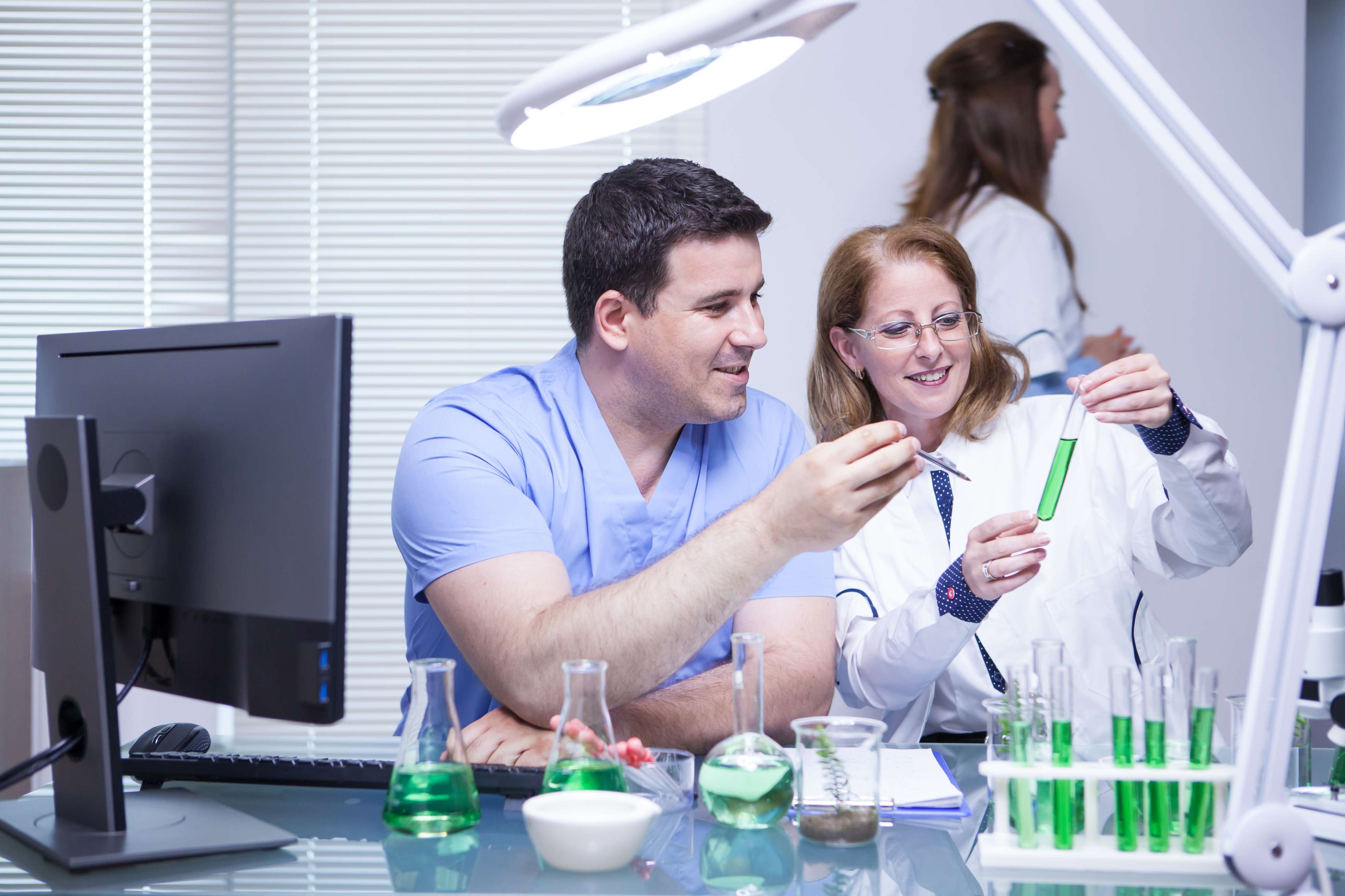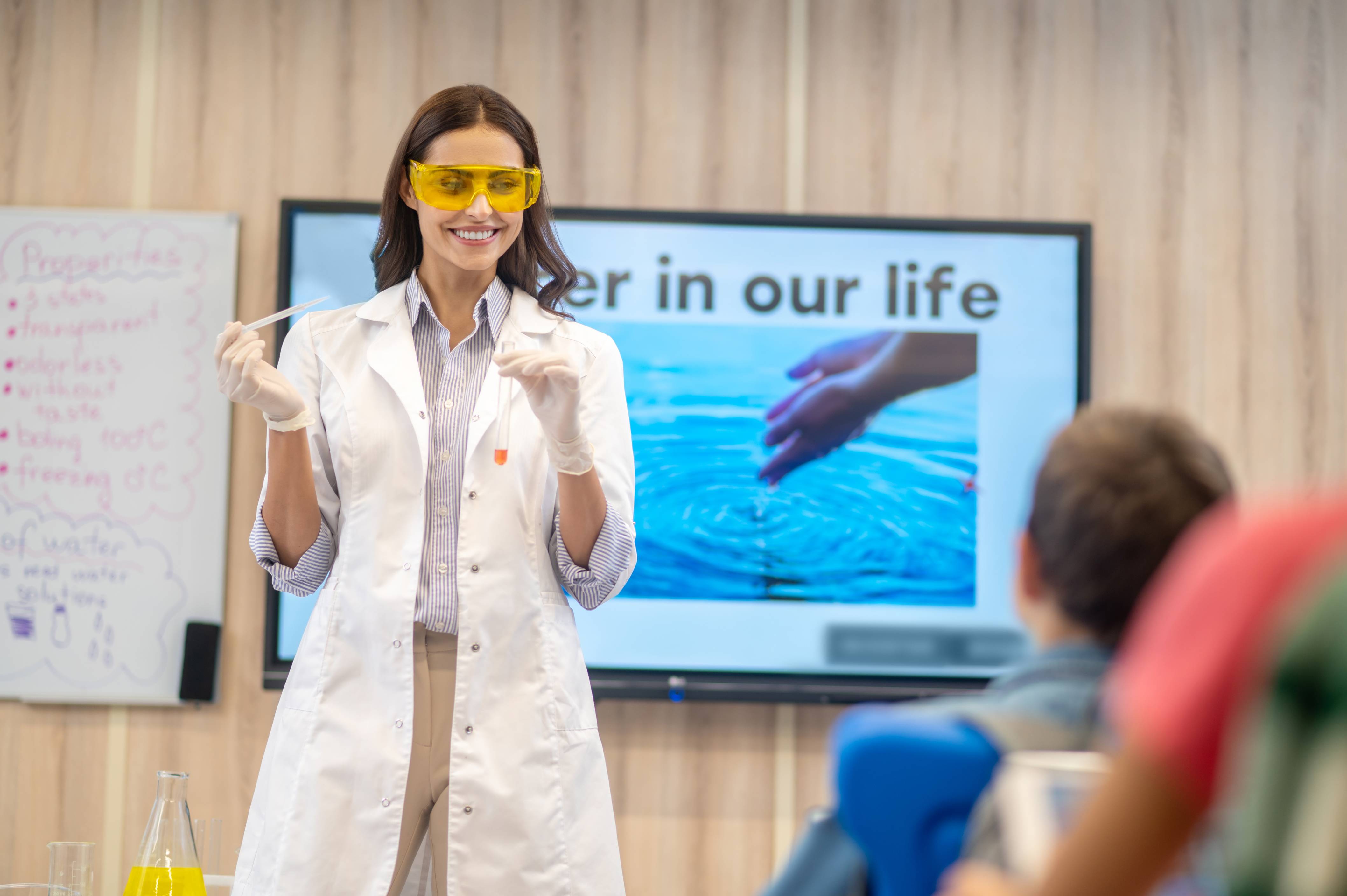No hospital or pharmaceutical company exists without a star pharmacist handling medicines, production, or research. Securing a global certification is a necessity to become an accomplished pharmacist or scientist. Pharmaceuticals is one of the sectors that has been witnessing exponential growth and will show a growing trend in the future too. Medicine is already undergoing a continuous transformation, with inventions and innovations happening around the world. The USA paves the way for those who want to be complete professionals in pharmaceutical science.
The profession of pharmacist itself is undergoing notable transformations, driven by advancements in healthcare, technology, and patient care models. Those who are willing to embark on an adventurous path of going across borders should be more attentive when selecting an appropriate program to support their future aspirations. And you need to meet the new-age demands of this ever-evolving landscape. This article throws light on some of the factors to be considered when zeroing in on a pharmacy course and gives you the options, locations, industry concentration, universities, and average salary ranges.
- Accreditation: Yes, accreditation is what you look for when you are at a crossroads, choosing the right institution and program. Make sure that your university is named for its research activities and that your program is accredited by the Accreditation Council for Pharmacy Education, which is important for your licensure and career options.
- Location Matters : From a job seeker's point of view, location always matters. Consider where the program is located and how it aligns with your career goals. Urban areas may offer diverse practice settings, while rural regions may have a greater demand for pharmacists, providing unique opportunities.
- Specialization Opportunities: If you have a specific area of interest within pharmacy, such as clinical pharmacy, pharmacology, or pharmaceutical research, look for programs that offer relevant specializations or tracks.
- Experiential Learning: Pharmaceutical science is one of the subjects that needs practicality more than theoretical knowledge. See if the program offers internships and experiential learning opportunities. The future is all about being a visionary. Your program should enable you to look into the future. Research has a lot of scope, so try to explore more program options with strong research facilities and faculty in a particular area of your interest.
- Career: After your graduation, you need to start somewhere, and a good organization with a brand name is the need of the hour. Carefully investigate the career options available after your graduation. Find a reputed consultancy or crack the campus interviews.
- Faculty Expertise : Good faculty is the backbone of your learning. Go through the profiles of the professors or researchers you are going to cross paths with. Know them and their research. Getting a good mentorship is the new-age mantra for a successful career.
- Networking Opportunities: Not all the seniors are friendly and helpful, yet this depends on your networking skills. Be with those who are successful and have an uptrend in their career graphs. Strong ties with the alumni network will definitely help you with any kind of issue you face on foreign soil.
- Financial Considerations: Last but not least, don't forget to consider the cost of tuition and the availability of financial aid, scholarships, and assistantships to manage your educational expenses.

When and where? Location and University:
When it comes to selecting a state or university for pharmacy graduates based on industry concentration, it's important to consider where the pharmaceutical, healthcare, and related industries are most prominent. The following states and universities are notable for their strong pharmaceutical and healthcare sectors, making them attractive options for pharmacy graduates seeking career opportunities:
- New Jersey: Often referred to as the "Medicine Chest of the World," New Jersey is home to numerous pharmaceutical and biotechnology companies, including Johnson & Johnson, Merck, Bristol-Myers Squibb, and Novartis. This state has a significant concentration of pharmaceutical research, manufacturing, and corporate headquarters.
- Massachusetts: Massachusetts, particularly the Greater Boston area, is a hub for biotechnology and healthcare innovation. Boston is home to renowned institutions like Harvard University and the Massachusetts Institute of Technology (MIT), as well as major biopharmaceutical companies like Biogen and Vertex Pharmaceuticals.
- California: California has a strong presence in the biotechnology and pharmaceutical sectors, particularly in the San Francisco Bay Area and San Diego. The University of California, San Francisco (UCSF), and Stanford University are known for their contributions to healthcare and research.
- Pennsylvania: The Philadelphia area is known for its healthcare institutions and pharmaceutical companies, including Pfizer, GlaxoSmithKline, and Johnson & Johnson. The University of Pennsylvania and Temple University are notable institutions in this region.
- North Carolina: The Research Triangle Park in North Carolina hosts a cluster of pharmaceutical and biotechnology companies, such as GSK, Novartis, and Biogen. The University of North Carolina at Chapel Hill has a strong pharmacy program.
Universities in States with Strong Industry Concentration:
When choosing a university for pharmacy studies based on industry concentration, it's essential to consider your career goals, desired specialization, and location preferences. Each of these universities and states offers unique advantages and opportunities, so conducting thorough research and evaluating how they align with your career aspirations is crucial to making an informed decision. Additionally, networking and internships within these industry-rich areas can enhance your career prospects as a pharmacy graduate.
Here is the list of universities that offer industry-ready courses, along with a huge network and scope for internships and research opportunities.
- 1. University of California, San Francisco (UCSF)
- 2. Harvard University
- 3. University of Pennsylvania
- 4. Rutgers, The State University of New Jersey
- 5. University of North Carolina at Chapel Hill
- 6. University of California, SanDiego (UCSD)
What after graduation?
As pharmaceutical science is closely related to the healthcare industry compared to other sectors, immediate openings will be related to medicine. However, there are many other opportunities for pharmacy graduates in the USA. This profession is versatile, and pharmacists are in huge demand for their importance and expertise in medication management, critical patient care, and healthcare administration too. Let us have a look at various possible career opportunities that can be pursued by an international graduate, along with average salaries.
Community Pharmacist: Pharmacists working in retail or community pharmacies typically earn an average salary ranging from $100,000 to $130,000 per year. This can vary depending on the location and whether it's an independent pharmacy or a chain store.
Hospital Pharmacist: Pharmacists working in hospital settings tend to have higher earning potential. The average salary for hospital pharmacists falls in the range of $110,000 to $140,000 annually. Specializations in critical care or oncology pharmacy can command higher salaries.
Clinical Pharmacist: Clinical pharmacists, who work directly with patients and healthcare teams in hospitals or clinics, can earn between $120,000 and $150,000 or more per year. Specialization and experience can impact earnings.
Pharmaceutical Industry: Pharmacists employed in the pharmaceutical industry, including roles in research and development, regulatory affairs, and sales, can earn salaries ranging from $100,000 to $160,000 or higher, depending on the specific role and level of experience.
Pharmacy Informatics: Pharmacists specializing in informatics, who manage healthcare information systems, can earn salaries similar to clinical pharmacists, averaging between $120,000 and $150,000 annually.
Managed Care Pharmacy: Pharmacists working for health insurance companies or PBMs may earn salaries in the range of $100,000 to $140,000 per year, with potential for higher earnings with experience and leadership roles.
Consulting: Salaries for consulting pharmacists can vary widely based on their level of expertise and the nature of their consulting work. On average, they can earn between $100,000 and $150,000 annually.
Academia and Research: Pharmacy educators in academia can earn salaries ranging from $80,000 to $160,000 or more, depending on the institution, location, and academic rank. Research-focused roles in academia may offer competitive salaries.
Government and Regulatory Agencies: Pharmacists working for government agencies can earn salaries that vary based on the specific agency and role. Salaries can range from $80,000 to $150,000 or more.
Long-Term Care Pharmacy: Pharmacists in long-term care settings may earn salaries in the range of $100,000 to $130,000 annually.
Clinical Research and Clinical Trials: Pharmacists involved in clinical research can earn salaries similar to those in hospital or clinical settings, with annual earnings typically ranging from $120,000 to $150,000 or more.
Specialty Pharmacy: Pharmacists specializing in specialty pharmacy may earn salaries on par with clinical pharmacists, with annual earnings ranging from $120,000 to $150,000 or higher.


